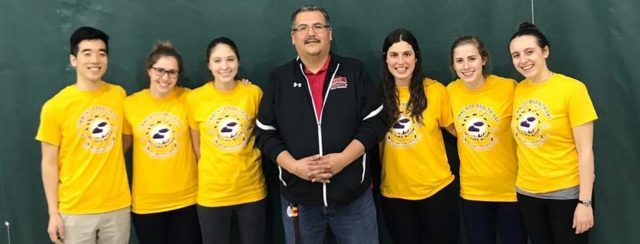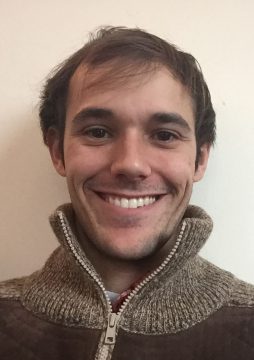
Each year, while many students spend spring break in a warmer climate, a group of first-year medical students from the Geisel School of Medicine travel to snowy Minnesota.
Their destination: Five Native American reservations.
Geisel’s annual Indian Health Service Trip (IHST) takes interested Dartmouth medical and public health students to visit tribal communities on reservations in Minnesota during spring break. Divided into groups, each visits a different reservation. An elective course within the medical school’s curriculum, IHST includes pre-trip preparation along with structured mid-trip and post-trip reflection. (Established in 1955, the Indian Health Service replaced the Bureau of Indian Affairs as the provider of healthcare to Native Americans and Alaska Natives.)
The goal of this innovative experiential cultural learning program, created by Shawn O’Leary, is to raise awareness of the complex social and healthcare issues facing Native American communities and to provide meaningful community service developed in collaboration with those community leaders.
O’Leary, director of Geisel’s Office for Diversity, Inclusion and Community Engagement and academic advisor to the Urban and Rural Health Scholars Programs, is a member of the Bois Forte Band of Ojibwe in northern Minnesota and has been leading IHS trips for more than 10 years.
“Everyone benefits from going on the trip,” he says. “The tribal communities benefit on many levels—they tell their stories and explain historical trauma in ways only they can. Opening their communities to others and openly telling their stories is healing. And through our service to others, the Dartmouth medical community learns so much. We hope to build a healthier, more empowered Native American community through this partnership.”
Stories about others connect us—they help us make sense of a world rife with complex issues. By listening to Native American stories about the history and challenges shaping tribal communities, medical students begin shaping their own narrative, putting into context both their relationship to those communities, and their place within the field of medicine.
Geisel students Morgan Mackey ’21, TlalliAztlan Moya-Smith MED ’20, and Devin Van Dyke ’21, share their experience.
Van Dyke writes about the privilege and deeply meaningful experience of visiting a reservation.
“The Minnesota IHST for first-year medical students, annually sends an increasing number of students to reservations across the state to spend a week as guests and friends. Logistically complex, this effort takes a significant amount of planning from Shawn O’Leary and two students traditionally drawn from Geisel’s Rural Health Scholars program.
“Native American society tends to hide its material poverty, complex dynamics, and deep-rooted resilience from wider view. To be welcomed as a visitor is deeply meaningful. I believe that this welcome, more than anything else in my first two years of medical school, cemented my understanding of what it is to be a doctor—a person invested with knowledge and sworn to help in all circumstances.

“To visit a reservation is a privilege, to go to medical school is a privilege, to be at Dartmouth is a privilege. All carry attendant responsibilities, which take intentional blinding to ignore.
“An act of welcome is a powerful statement from a people whose sphere of influence has been curtailed; the boundaries of their reservations are the limits of their sovereignty and their bulwark against intrusion, and opening these to strangers is a striking, meaningful expression of trust. It is a compelling, vocal act for a people whose voices have so often been shunted aside, ignored until they sink beyond a threshold of audibility for the wider society. It is a call of friendship and a call for help, and one which people of conscience cannot easily ignore. From wherever it comes, whether the forests of Minnesota, deserts of Arizona, or mountains of West Virginia, it is the purpose of rural medicine to encourage and amplify this voice, and work towards fulfillment of the needs it urgently expresses.”
Illustrating the affect just one medical student can have, O’Leary recalls an elder in a community who recently called him to happily report, “That medical student you sent us still calls and bothers me to quit smoking! And I always quit for a few weeks after taking to him.” O’Leary says she was thanking him for sending such thoughtful and caring students to Minnesota each year to work with the tribal communities. He later received an email from that same student who wrote, “I want to thank you for your work exposing Dartmouth med students to Native American healthcare. It has certainly made a big difference in my career trajectory.”
That former student is now working as a physician serving a Native American community. O’Leary says this captures the essence of what the Minnesota IHST is about, “an opportunity for our students to meaningfully engage in and learn about the healthcare needs of Native Americans and then go back to serve as a physician.”